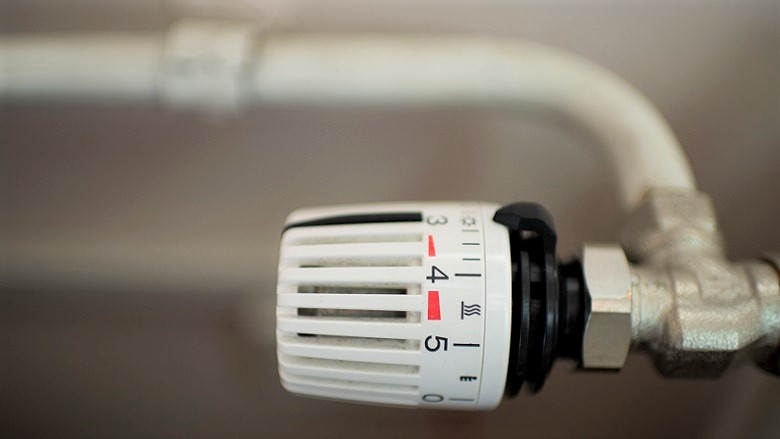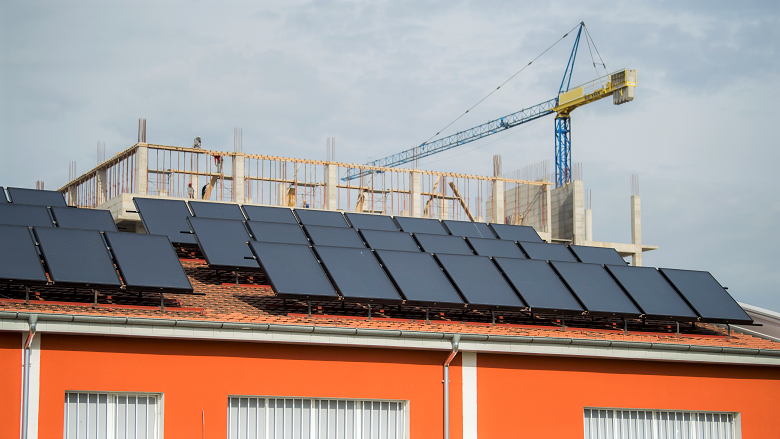
WORKING TO MAKE KOSOVO MORE ENERGY EFFICIENT
Increased energy efficiency (EE) and renewable energy (RE) are fundamental components of the World Bank Group’s energy sector engagement, and are key to helping Kosovo achieve greater energy security. The country has significant potential to improve energy efficiency and to integrate renewable sources into its energy supply mix. However, with energy demand projected to increase by about 4.6% per year through 2020, the need to improve energy efficiency is increasingly urgent.
The World Bank is supporting Kosovo through a US$ 31 million Kosovo Energy Efficiency and Renewable Energy Project, which aims to reduce energy consumption and fossil fuel use in public buildings. Through this investment, the Bank also supports Kosovo in enhancing its policy and regulatory environment for renewable energy and energy efficiency.
Results achieved as of April 2019:
- 32 public buildings, mainly health clinics and university buildings, have been upgraded for energy efficiency
- works have started in another 25 buildings; by the end of the project, the aim is to have over 80 public buildings improved for energy efficiency
- these energy efficiency renovations benefited over 7,500 employees and users and led to significant comfort level improvement for the building users
- based on energy audit reports, energy consumption is reduced by 49%, or 13,239 MWh/annum compared to baseline
- the renovations will reduce CO2 emission by 4,700 tons annually
Energy efficiency investments in the public sector can significantly lower energy costs, creating fiscal space for other development priorities, while enhancing competitiveness and job creation. International experience has shown that investments in energy efficiency in the public sector can help catalyze energy efficiency markets, allowing governments to lead by example and pave the way for similar improvements in the private sector.

A 2013 World Bank market assessment in Kosovo found that the building sector accounts for 48% of final energy consumption and has an energy efficiency potential of about 44%. Public buildings showed the highest savings potential, with 38-47% in municipal buildings and up to 49% in central government buildings. Such energy savings could contribute to substantial budgetary savings for the Government of Kosovo and allow for other necessary investments in the economy.
A key impediment, however, to renewable energy development for both the public and private sector in Kosovo has been the underdeveloped regulatory regime and a lack of complete and reliable resource data. Regulatory enhancements, along with select renewable energy assessments and feasibility studies, should therefore be supported in areas not covered by other donors and consistent with Kosovo’s renewable energy development plan.
Central and municipal governments will benefit from the Kosovo Energy Efficiency and Renewable Energy Project through reduced energy expenditures, renovated building stock, and improved indoor comfort and functionality. The Ministry of Economic Development, the Ministry of Environment and Spatial Planning, the Kosovo Energy Efficiency Agency, and the Energy Regulatory Office will all develop their capacities to foster sustainable energy investments across the country.
Kosovo’s private sector will also benefit in several ways. An improved regulatory environment is expected to facilitate faster licensing and greater market entry for renewable energy development. Renewable energy and energy efficiency equipment suppliers and service providers are expected to benefit from increased demand for their goods and services. For example, by modernizing and lowering the energy use of universities and hospitals, students and patients will benefit from improved comfort levels, functionality, and reduced air pollution.
Going Forward
Investing in energy efficiency in public buildings can save the public budget some €18 million every year. Energy efficiency also helps Kosovo enhance energy security by reducing seasonal energy imports, create local jobs, reduce local and global pollution and help meet the commitments under the EU’s Energy Community Treaty.
The World Bank has also been working with the Government of Kosovo and the European Commission to establish and provide funding for the new Energy Efficiency Revolving Fund to support energy efficiency improvements in municipal public buildings. Going forward, the Fund will provide financing for retrofitting municipal public buildings and use energy cost savings to repay the investment cost, thereby creating a more sustainable financing mechanism. This would allow the government to scale up energy efficiency investments in more than 1,600 municipal public buildings.